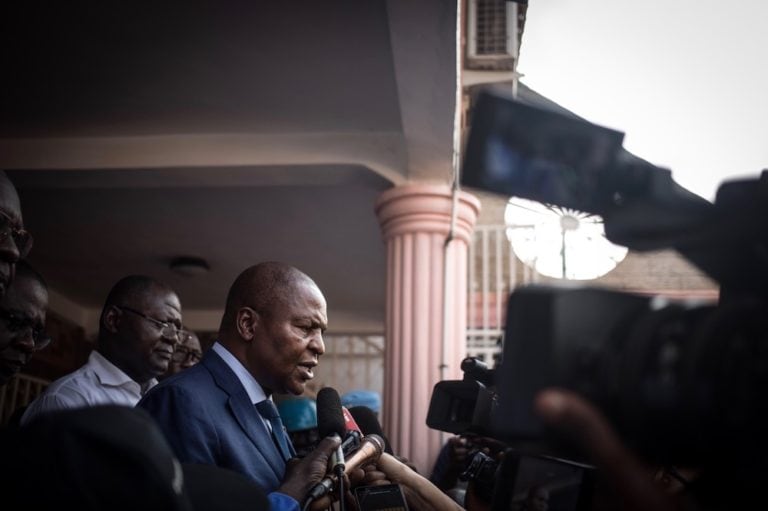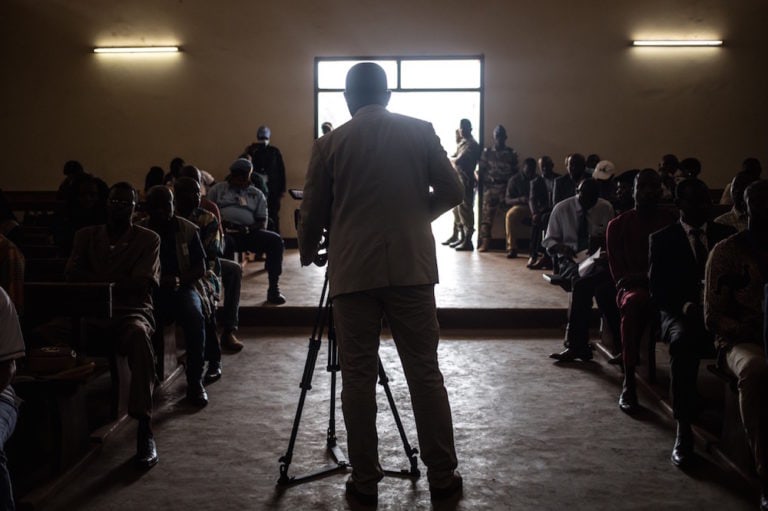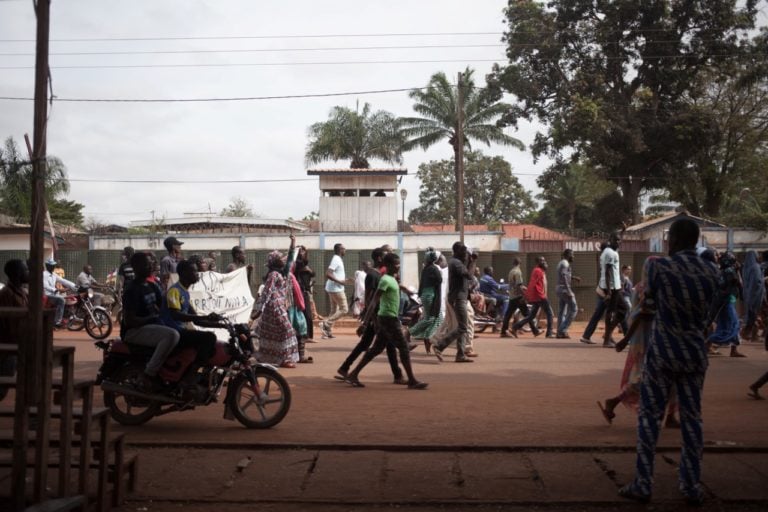(RSF/IFEX) – RSF has called for the immediate release of Maka Gbossokoto, publication director of the independent daily “Le Citoyen” and an RSF correspondent, following a 16 July 2004 court appearance at which the Bangui High Court prosecutor asked for a 12-month prison sentence with no parole for Gbossokoto. RSF also demanded that all charges […]
(RSF/IFEX) – RSF has called for the immediate release of Maka Gbossokoto, publication director of the independent daily “Le Citoyen” and an RSF correspondent, following a 16 July 2004 court appearance at which the Bangui High Court prosecutor asked for a 12-month prison sentence with no parole for Gbossokoto. RSF also demanded that all charges against the journalist be dropped.
“Since they came to power in the spring of 2003, the Central African Republic authorities have claimed that they support the decriminalising of press offences. But the arrest and trial of Gbossokoto indicate that we are very far from that ideal at the moment,” said RSF.
“The harsh sentence requested by the prosecution is in complete violation of freedom of information, and makes [President] François Bozizé’s government one of the most repressive regimes on the African continent with respect to media independence,” said the organisation.
“It is unacceptable that this journalist, who has been in prison since 8 July, be remanded in custody pending a possible release at his sentencing hearing on 9 August. This scandal will end only with his immediate release and the dropping of all charges against him,” concluded the organisation.
Gbossokoto faces defamation charges brought by the former director of the power company Enérgie centrafricaine (ENERCA), Jean-Serge Wafio, who was dismissed by President Bozizé in June for mismanagement. “Le Citoyen” had published numerous articles accusing the former utilities director of misappropriation of funds.
On 16 July, Gbossokoto appeared before the Bangui High Court on charges of defamation and “public insult”. Following the hearing, presiding Judge Trinité M’Bango-Sangafio adjourned deliberation in the case until 9 August, rejecting the defence’s request for a conditional release pending trial.
The Bangui High Court prosecutor has asked the court for a 12-month sentence with no parole and a fine. The journalist’s lawyers, who include the president of the National Transition Board (Conseil national de transition, CNT, the Central African Republic’s transitional Parliament), Nicolas Tiangaye, have demanded the release of their client, calling the proceedings invalid.
About 100 people were present at the hearing, while outside the court room a large crowd awaited word of the trial. Gbossokoto was arrested on 8 July. He was charged and imprisoned on 12 July. His arrest and imprisonment have provoked numerous protests, most notably by the Central African Association of Private and Independent Newspaper Editors (Groupement des éditeurs de la presse privée indépendante de Centrafrique, GEPPIC), whose members suspended publication of their newspapers for one week.
The Gbossokoto case takes place amid growing harassment of the privately-owned press in the country. In two official 7 June communiqués, Communications Minister Parfait M’Bay issued serious warnings to the independent media.
In the first statement, M’Bay denounced what he called “serious abuses” that had been noted recently among privately-owned print media, some of whom were reportedly being “used by a number of fellow citizens to misinform, manipulate and discredit senior government officials [. . .].” The minister reminded the publication directors of the papers in question that they were expected “to tell the truth and only the truth” but that they should also bear in mind that “not all truths are meant to be told.”
In his second message, the minister threatened the directors with closure of their papers if they did not fulfil requirements for their publishing licences by 15 July, in accordance with freedom of information laws.
Moreover, Bangui Appeals Court Prosecutor Sylvain N’Zas publicly accused the independent press of making “inappropriate comments” towards the authorities and threatened to “bring the full force of the law to bear.”


